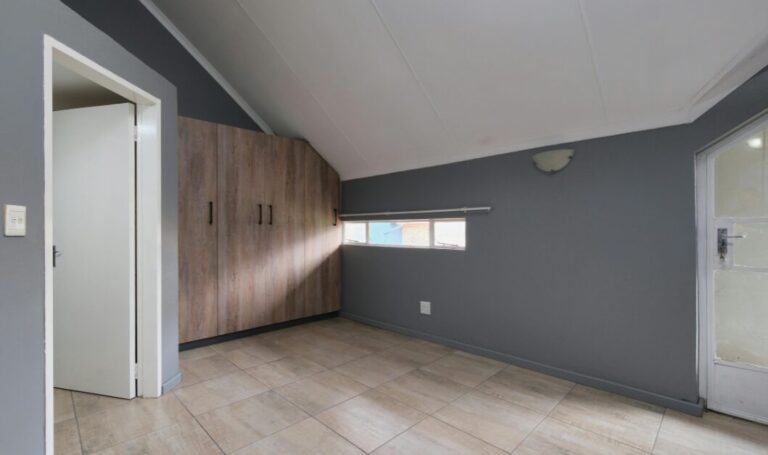Although it seems scary, you can sell your home, and you can do it quickly. We can’t guarantee that your house will sell in a week, but following these steps can help you vastly reduce the amount of time you spend trying to sell your home.
First of all, consider what selling route you’re going down, so, are you going to have a traditional listing with a set asking price and multiple viewings? Or, are you going to auction your home and perhaps get more or possibly less than your ideal asking price? Whichever route you go down there are things you can do to make your property more attractive and increase your chances of a quick sale.
For traditional listings:
-
Choose your estate agent
Having an agent with a wide database of potential buyers is crucial when trying to sell a property quickly; you want as many people as possible to see your home after all. With Hunters you know that we have a national chain of agents and large online and print advertising presence. This ensures that your property will be seen by the maximum number of people possible, and Hunters will be with you every step of the way.
-
The time of year matters
As annoying as it seems, it is worth remembering that it is easier to sell properties at certain points during the year than others. Seasonally speaking, Spring is the best time to sell your home quickly, because families tend to want to wait until the end of the school year to move, and the market is usually busier with more buyers. You also have the advantage of your garden being in bloom and more hours of natural light to showcase your home at its best. Autumn comes in a close second because the weather is still good and there are no major holidays which reduce the speeds of the buyers or businesses involved. If you are selling in Autumn then it is worth getting your home on the market as quickly as possible because people don’t generally want to be transacting over the pre-Christmas period. Selling quickly in high Summer and Winter is possible, but harder, so make sure you take the seasons into account as well as local and national selling trends.
-
Location, Amenities, Facilities
Beyond the property itself, you should also consider what your home has to offer in terms of amenities and facilities. If you’re close to a good school or have great transport links to business or industrial centres then this can help your home to sell more quickly. Consider any recent developments that may increase the value of your home, but if possible, try not to sell whist these are under construction — no one wants to look at a building site after all.
-
Disassociate yourself from your house
As hard as it sounds, now you need to separate yourself from your home and cast a critical eye over it, you want to put yourself in a buyer’s shoes — how does your property look at first glance? It’s also time to put away some of those baby photos, by putting away personal items you can help potential buyers to imagine themselves in the space. If necessary, consider renting storage space at this point for all your keepsakes, and this will give you one less thing to move when the day rolls around.
-
Clean, Fix, Modernise
It’s not enough to just tidy up, it’s also time to do all those bits of DIY you’ve been putting off for years. To help your home sell as quickly as possible you want to minimise the amount of time that you spend with solicitors negotiating little fixes and adjusting prices. So, fix those dripping taps, fix any cracked plaster, and then move onto looking at the decor. Buyers are more inclined to buy light and airy properties, whether that means adding a fresh coat of paint or changing your light fittings, there are little things you can do to make your home appear more inviting.
-
Staging
It sounds obvious, but make sure your home is at its best before every viewing, brush away those cobwebs, make sure there’s no washing up in the sink, and then think about the weather. If it’s dark and cold outside make sure your home is warm and inviting, and if it’s a blissfully sunny day, have a cool breeze coming through the windows. Whatever the weather, ensure that your home is bright and inviting, first impressions count when trying to make a quick sale.
-
Start conveyancing before you have offers on the table
To help sell your home quickly it helps to have your initial paperwork in order already, so instruct a solicitor, have your draft contract underway, and apply for the the title deeds and any other paperwork you’ll need.
-
During and after the viewings
You can learn as much about your potential buyers in a viewing as they can learn about your property, so ask questions, be positive, and consider your offers carefully. During the viewings be as positive as you can be about your home and the area you live in, show the best rooms first, and always let the viewer go in first. The last point goes back to helping the viewer imagine themselves living here, working their way around their own home.
Take the opportunity to learn whether the parties are:
-
Are they already on the property ladder?
-
Are they first time buyers?
-
Is their current home under offer?
-
Are they buy to let investors?
When you’ve gathered all this information, you can use it to help choose the quickest buyer; and remember, the fastest buyer may not always be offering the most money.
-
Accepting the offer
When you’ve accepted the best offer available your solicitor can push the conveyancing forwards, and you can negotiate with the buyer what items and fittings are included in the sale. You’re now close to securing your sale so make sure you keep in touch with your solicitor and estate agent to check that the buyer is still committed to the purchase.
When you’ve signed and exchanged the final contracts the sale is now recognised legally and as such binding, so if either party pulls out after this point, there will be a fee. With a confirmed completion date your sale is pretty much done!
-
The last step
On your completion date your solicitor will receive the total sum from the buyer and you’ll hand over your keys. Now, breathe out and relax, your home has now been sold!
For auctions:
Some properties are better suited to auction than others, unusual properties which are hard to value, or properties that need a lot of work do especially well here. If your home is difficult to precisely value then an auction will determine its value by simply seeing how much someone is willing to pay for it. Or, if your property needs quite a few updates, buyers at auction are usually more willing to look past faults and see the true potential of a home. Auctions also offer a fixed time scale of 28 days for your sale which is perfect if you need to move abroad for any reason, or if you are looking to move into your next property shortly. The real advantage of auctions is knowing that after the hammer falls, the contract between you and the buyer is legally binding — the risk of purchasers withdrawing or other complications is minimal.
So, if you’re preparing for auction, there are a few things you need to consider:
-
Choosing your auctioneer
There are lots of auctioneers out there with varying histories and reputations, so be sure to choose carefully. With Hunters, you know that you’re going to be dealing with experts who have years of experience in selling homes just like yours. You also know that we have a national network of offices and agents who are able to connect buyers across the country with your property.
-
Find out how much your home is worth
Auctions are known to drive up the price of houses, so setting your reserve and guide prices aren’t quite as simple things to do as you’d think. Your reserve price is the lower limit of what you’re willing to accept, but your guide price should ideally be slightly under the true market value to entice bidders to drive the price up during the auction itself. However, you need to not set your guide price too low either, because experienced auction buyers are aware of these trends and will be put off as the price is driven up during auction day.
-
Preparing your home for auction
When you’ve agreed your reserve and guide prices, it’s time to get your home ready for the auction. As with any other sale, making sure that your home is ready for viewings is crucial. Auction viewings differ slightly in that you set time windows for interested parties to come and view your property, and in that time a single person could come by, or you could have a dozen parties come and view your home. Knowing exactly when all of the viewing windows are from the outset can help to give you even more peace of mind, because you won’t have viewings on a day or two’s notice, so you can plan around them properly.
-
The auction itself
You don’t have to attend the auction of your property, but it can help you to still secure a sale even if your property doesn’t meet its reserve price. If you need to sell your property quickly and are willing to sell for less than its reserve price, then it may be possible for you to negotiate with interested parties after the lot has ended. So long as a price is agreed, the deal can go ahead on the same time scale, and be out of your hands in just 28 days.




